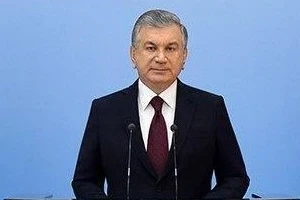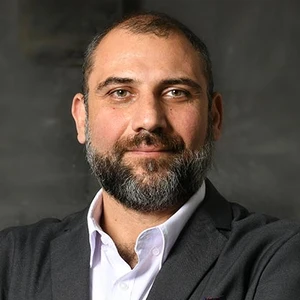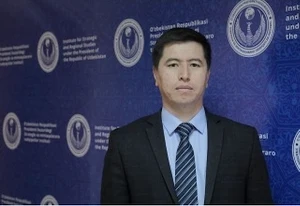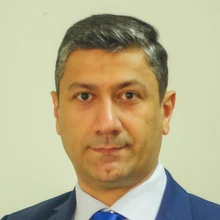Publications
Prospects and Challenges in Armenia–Azerbaijan Peace Talks
 By Benyamin POGHOSYAN, PhD, Chairman, Center for Political and Economic Strategic Studies
By Benyamin POGHOSYAN, PhD, Chairman, Center for Political and Economic Strategic Studies
Currently, the situation is intriguing. Both sides claim substantial progress in peace talks. At the December 5 Organization for Security and Cooperation in Europe (OSCE) Ministerial Council, Armenia’s foreign minister announced that the preamble to the peace agreement text and 15 out of its 17 articles had been finalized. The Armenian prime minister later stated that 90% of the text was agreed. However, according to the Azerbaijani state-affiliated think tank AIR Center, at least three contentious issues remain unresolved: the presence of the European Union (EU) mission in Armenia, constitutional and legal changes in Armenia, and the withdrawal of Armenia’s legal cases against Azerbaijan in international courts. Baku has also proposed two other preconditions to any peace agreement. These include dissolving the OSCE Minsk Group and establishing a “Zangezur corridor” free of Armenian control.
READ MORE
Publications
Breaking the Present Deadlock in the Armenia-Azerbaijan Peace Process Will Remain a Formidable Task in 2025
 By Vasif HUSEYNOV, PhD, Head of Department, AIR Center, Adjunct Lecturer, ADA and Khazar Universities, Baku By Vasif HUSEYNOV, PhD, Head of Department, AIR Center, Adjunct Lecturer, ADA and Khazar Universities, Baku
On 10 December, the Center for Analysis of International Relations (AIR Center), a Baku-based political think tank closely affiliated with the Azerbaijani government, held a high-level international conference titled “The Main Obstacle to a Peace Agreement Between Azerbaijan and Armenia.” The conference identified the territorial claims in Armenia’s constitution against Azerbaijan as the primary obstacle to peace. Elnur Mammadov, Azerbaijan's Deputy Foreign Minister, contributed to the discussion as keynote speaker, clarifying the position of the Azerbaijani government on the issue. The event also featured James Sharp, former UK Ambassador to Azerbaijan, and Židas Daskalovski, adviser to the North Macedonian president, who shared insights from their countries’ experiences in amending constitutions to resolve interstate disputes. READ MORE
Publications
The Multidimensional Foreign Policy of New Uzbekistan  Bakhram Sotiboldiev,
Bakhram Sotiboldiev,
Head of the Department of the Institute for Strategic and Regional Studies under the President of the Republic of Uzbekistan
In today's rapidly changing world, Uzbekistan confidently positions itself as one of the key players on the international stage. The country’s foreign policy, reinvigorated with the election of Shavkat Mirziyoyev as President in 2016, demonstrates impressive results, transforming the republic into a significant center for regional and global diplomacy. READ MORE
Publications
The Geopolitical Aspects of the India-Armenia Partnership


 By Nvard CHALIKYAN, Research Fellow, APRI Armenia
By Nvard CHALIKYAN, Research Fellow, APRI Armenia
Benyamin POGHOSYAN, PhD, Senior Research Fellow, APRI Armenia
Verej ISANIANS, Senior Editor, APRI Armenia
The South Caucasus is an important Eurasian political and economic hub, as its transport networks have the potential to facilitate travel across the continent. Control over the South Caucasus grants access to the Black Sea and the Caspian Sea basin, serving as a gateway to Central Asia and the Greater Middle East. Given its strategic importance, regional powers such as Russia, Türkiye, and Iran have vied for influence in the South Caucasus for centuries. In recent years, the demand for alternative transport corridors has surged amid the ongoing Ukraine war, sanctions on Russia, conflicts in the West Asia (Middle East) region, and the resulting difficulties with traditional supply routes such as the Suez Canal. Consequently, the South Caucasus has become increasingly important as a link between Asia, Europe, and Russia.
READ MORE
Publications
In Uzbekistan, strengthening interethnic and interfaith solidarity is always a priority of state policy  Samariddin Sattorov,
Samariddin Sattorov,
Chief Researcher of the Institute for Strategic and Regional Studies under the President of the Republic of Uzbekistan
In recent years, geopolitical tensions have been increasing in different regions of the world, and interethnic conflicts and contradictions on religious grounds continue to worsen.
In the context of such instability, maintaining an open and constructive dialogue between different religious and cultural groups is becoming vital. Strengthening religious tolerance helps to create an atmosphere of mutual understanding, respect and generosity in society, which in turn alleviates tensions and prevents the escalation of conflicts. READ MORE
Publications
New Azerbaijan-Iran Railway Agreement Grapples With Regional Tensions
 By Fuad Shahbazov, Baku-based independent regional security and defence analyst By Fuad Shahbazov, Baku-based independent regional security and defence analyst
On October 15, Chairman of Azerbaijan Railways Rovshan Rustamov arrived in Tehran to meet his Iranian counterpart Jabbar Ali Zakeri Sardroudi to discuss the construction of a railway line linking Azerbaijan’s East Zangezur region and its Nakhchivan exclave through Iran. The meeting came amid intensive diplomatic negotiations between Azerbaijan and Iran regarding the Aras Corridor transit route linking Azerbaijan to Nakhchivan and further to Türkiye via Iran after a period of silence and diplomatic rifts between the two neighbors. The Aras Corridor project, strategically significant for both Baku and Tehran, emerged following Azerbaijan’s persistent efforts after the 2020 Karabakh War to establish regional communication lines, particularly a land route, through Armenia’s Syunik province to Nakhchivan and Türkiye, known as the Zangezur Corridor. The ongoing confrontation between Azerbaijan and Armenia over the land route through Syunik province has been a major point of contention, delaying the signing of a final peace treaty between Baku and Yerevan. READ MORE
Publications
The Future of Regional Corridors in the Middle East and India’s Role  By Yeghia TASHJIAN, Beirut-based regional analyst and researcher, columnist, "The Armenian Weekly” By Yeghia TASHJIAN, Beirut-based regional analyst and researcher, columnist, "The Armenian Weekly”
With the future of key connectivity projects at stake, India must step up as a reliable mediator as the war in the Middle East escalates.
On 7 October 2023, Hamas launched the “al Aqsa Storm” operation against Israel, triggering a series of retaliatory military actions from both sides. Iran-backed groups such as Hezbollah in Lebanon and militias in Yemen also became involved, further escalating the conflict. With rising regional tensions and direct involvement from both Israel and Iran, instability across the Middle East has intensified. This conflict will also impact the future of economic corridors in the region in which India invests. In this context, the future of two important corridors—the International North–South Transport Corridor (INSTC) and the India-Middle East-Europe Corridor (IMEC)— is at stake. India initiated both corridors, emerging as a rising power in Eurasia.
READ MORE
Publications
Armenia’s Constitutional Catch-22  By Tabib Huseynov, independent policy analyst and researcher By Tabib Huseynov, independent policy analyst and researcher
In October 2024, the presidents of Armenia and Azerbaijan simultaneously approved a Protocol regulating the joint work of their respective border delimitation commissions. Originally signed in August, this Protocol sets the legal and procedural framework for the subsequent border delimitation process between the two South Caucasus neighbours, who have been locked in a territorial dispute for over three decades. The protocol’s enactment in both countries became possible after Armenia’s Constitutional Court issued a landmark Decision No. 1749 on 26 September 2024, confirming that the border delimitation agreement complied with Armenia’s Constitution. As border delimitation is a key issue in the post-war normalization process between Armenia and Azerbaijan, this favourable decision was widely anticipated. However, the Court’s Decision is remarkable not for its outcome, but rather its legal rationale, which traps Armenia in a legal and political Catch-22. READ MORE
|
|